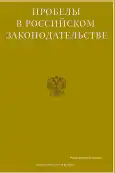Исследование уровня физической подготовленности сотрудников, принятых на службу в органах внутренних дел
- Авторы: Тхагалегов А.А.1
-
Учреждения:
- Краснодарский университет МВД России
- Выпуск: Том 16, № 4 (2023)
- Страницы: 130-134
- Раздел: Актуальные проблемы подготовки и повышения квалификации сотрудников органов внутренних дел в современных условиях
- URL: https://journal-vniispk.ru/2072-3164/article/view/250369
- ID: 250369
Цитировать
Аннотация
В данной статье изучены вопросы профессионально-прикладной физической подготовки сотрудников ОВД, влияющих на физическую подготовленность. Профессионально-прикладная физическая подготовка сама по себе означает использование физической культуры и спорта для подготовки человека к определенной профессиональной деятельности. Однако следует отметить, что профессиональная пригодность означает избирательное использование ресурсов физической культуры и спорта. Это означает, что не каждое упражнение, техника и т.д. способны обеспечить решение поставленных профессиональных задач. Например, средства, используемые полицией и подразделениями специального назначения или военными, будут существенно отличаться именно из-за профессиональных задач, которые придется выполнять конкретному лицу. Общеизвестно, что полицейская служба связана с постоянным стрессом, который накапливается и влияет как на физическое, так и на психическое здоровье человека, она также связана с обеспечением безопасности граждан своей страны и борьбой с преступностью. Это означает, что для выполнения услуги необходимо пройти достаточно серьезную подготовку, в противном случае возрастает риск невыполнения поставленных задач или угроза жизни и здоровью сотрудника.
Сделан вывод о том, что ситуацию, сложившуюся в настоящий период, можно охарактеризовать как движение на месте без какого-либо прогресса, поскольку слушатели проходят довольно обширный курс обучения за короткое время. Большинство знаний и навыков, которые были приобретены, забываются и не используются, должным образом проходя обучение, в дальнейшем ситуация повторяется. В связи с этим задачей профессорско-преподавательского состава является постоянный прогресс в подготовке слушателей, а для этого необходимо, прежде всего, подумать о переходе к более эффективным системам образования, которые позволят включать в обучение не только практические, но и теоретические знания, формирование о мотивации слушателей не только к успешному освоению дисциплины, но и к саморазвитию, использованию индивидуального подхода в процессе обучения с целью повышения эффективности работы слушателя.
Полный текст
Открыть статью на сайте журналаОб авторах
Азамат Арсенович Тхагалегов
Краснодарский университет МВД России
Автор, ответственный за переписку.
Email: kodzokov.aznaur@bk.ru
старший лейтенант полиции, преподаватель кафедры физической подготовки, Северо-Кавказский институт повышения квалификации (филиал)
Россия, Нальчик, КБРСписок литературы
- Афов А.Х. Роль физической подготовки и спорта в профессиональной подготовке сотрудников ОВД / А.Х. Афов // Образование. Наука. Научные кадры. 2020. № 1. С. 126-128.
- Бауаев Ш.Х. Роль профессионально-прикладной физической подготовки в служебной деятельности сотрудников ОВД // Евразийский юридический журнал. 2022. №9(172). С. 456-457.
- Галкин В.Н. Профессионально-прикладная физическая подготовка сотрудников органов внутренних дел: проблемы и перспективы развития // В сборнике: Физическая подготовка сотрудников органов внутренних дел Российской Федерации. Сборник научных статей Всероссийского конкурса. Редколлегия: Р.В. Камнев, О.С. Панова, Д.Г. Овечкин [и др.]. Волгоград. 2022. С. 24-26.
- Дадов А.В. Основы профессионально-прикладной физической подготовки слушателей образовательных организации МВД России // Образование. Наука. Научные кадры. 2019. № 2. С. 182-184.
- Канукоев А.М. Профессионально-прикладная физическая подготовка сотрудников ОВД: организационно-методический аспект // Культура физическая и здоровье. 2022. № 1 (81). С. 16-19.
- Сидорова М.М. Профессионально-прикладная физическая подготовка сотрудников полиции, проходящих первоначальную профессиональную подготовку // В книге: Преступность в СНГ: проблемы предупреждения и раскрытия преступлений. Сборник материалов международной научно-практической конференции. 2020. С. 311-313.
- Тхагалегов А.А. Профессиональная подготовка сотрудников органов внутренних дел комплексным силовым действиям в оперативно-служебных ситуациях // Пробелы в российском законодательстве. 2022. Т. 15. № 4. С. 105-109.
- Хажироков В.А. Специфические характеристики профессионально-прикладной физической подготовки сотрудников органов внутренних дел // Образование. Наука. Научные кадры. 2019. № 2. С. 220-222.
- Хажироков В.А. Специфические особенности профессионально-прикладной физической подготовки в образовательных организациях МВД России // В сборнике: Физическое воспитание и спорт: актуальные вопросы теории и практики. Сборник статей Всероссийской научно-практической конференции. Ответственные редакторы В.М. Баршай, А.А. Тащиян. 2019. С. 138-143.
- Ярославский М.А. Актуальные вопросы профессионально-прикладной физической подготовки сотрудников ОВД / М.А. Ярославский // В сборнике: Социально-экономические, историко-правовые, философские концепции современности. Материалы XIX Всероссийской научно-практической конференции. Ставрополь. 2022. С. 200-203.
Дополнительные файлы








